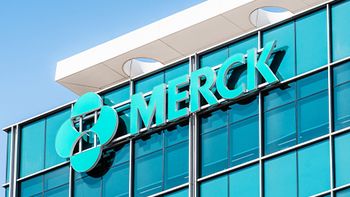
- Pharmaceutical Commerce - May/June 2014
The importance of accreditation for specialty pharmacy organizations
Why accreditation?
The phrase “URAC accredited” has been showing up more frequently in pharmacy contexts, usually indicating that the pharmacy has met the accreditation standards of URAC for specialty pharmacies. This can be an important signifier of quality, safety and reliability of service, which should be important to anyone interacting with specialty pharmacies, including pharmaceutical manufacturers. But who is URAC, and what does it do?
URAC has existed since the mid-1980s as an impartial accreditation organization for healthcare providers, health plans and other healthcare organizations. (The name refers to its original identity, the Utilization Review Accreditation Commission, but URAC’s scope has expanded considerably since then.) Organizations such as specialty pharmacies apply for accreditation; URAC reviewers perform a “desktop review” of policies and procedures, and conduct an onsite visit. A reasonable fee, based on the scope of the particular standard, is charged. Standards are developed by committees of experts; these are reviewed in draft form for public comment, and are updated regularly, usually on a three-year cycle.
URAC’s Pharmacy Quality Management Accreditation programs demonstrate a commitment to quality and safety. These programs deliver national standards, key benchmarks in service quality, and continuous quality improvement-oriented processes that enhance operations and compliance. In addition, URAC’s Pharmacy Quality Management Accreditation programs are a seal of approval for employers, consumers, regulators, and providers. They validate that an organization has access to drugs and pharmacies, provides for medication management and safety, and that contract terms and pricing structures are clear.
URAC’s accreditation programs provide comprehensive, third-party assurance for consumers and purchasers that quality standards are met for consumer protection and empowerment, appropriate access to drugs and pharmacies, patient safety, and disclosure of pricing and contracting terms.
Why is URAC’s Specialty Pharmacy Accreditation a good idea?
URAC’s Specialty Pharmacy Accreditation defines the key components necessary to achieve improved care and patient centered management to deliver quality, cost effective pharmacy services and patient management.
In addition, Specialty Pharmacy Accreditation provides an independent evaluation of an organization’s ability to deliver high quality, efficient, and cost effective care as demonstrated through consistent policies and procedures and quality performance outcomes.
The Specialty Pharmacy Accreditation ensures that providers within the pharmacy network are able to add value and meet performance and medication delivery goals.
URAC’s Specialty Pharmacy Accreditation provides validation of excellence in Specialty Pharmacy Management and Continuous Quality Improvement (CQI) oriented processes that improve operations and enhance compliance. It also assists specialty pharmacies in preparing for regulatory compliance.
Benefits to the specialty pharmacy
URAC standards support creation and maintenance of a quality management framework, and/or a template for policies and procedures that address:
- Ongoing management of quality procedures, including a quality committee, following a logical blueprint for quality management, maintenance and reporting;
- Development and maintenance of written policies and procedures;
- Staff qualifications, credentialing, and oversight requirements of qualified staff for certain functions;
- Development, delivery and expectations of drug utilization management programs;
- Scope of appeals considerations, or procedures in place for how an appeals process works;
- URAC educational support and training to assist with adherence to standards.
URAC’s accreditation reviewers work with applicants to ensure that consumers are receiving the best possible care, allowing each accrediting organization to decide how that care will be delivered.
Value to stakeholders
Organizations that achieve URAC accreditation prove to consumers, regulators, payers, and outside stakeholders that their operations are in line with the top tier of the industry:
Regulators
- Optimizes the use of best practices for quality
- Keeps up with healthcare changes constantly
- Cost effective addition to state oversight of compliance
Legislators
- Encourages improvement in healthcare due to an impartial evaluation process
- Supports ongoing quality enhancements by constantly evaluating and changing benchmarks to reflect best practices
- Provides transparency and accountability
Healthcare Providers
- Delivers appropriate clinical oversight
- Provides specialty peer to peer reviews
- Complements national professional standards of practice
Health Insurers
- Provides a competitive advantage to those organizations which are accredited
- Enhances operational efficiencies
- Reduces liability by complying with national standards.
Forty-eight states, the District of Columbia, and six federal agencies reference URAC accreditation in state and federal statutes, regulations, agency publications, requests for proposals, or contract language. URAC is internationally recognized with accredited organizations in four countries outside the United States.
URAC promotes pharmacy quality through accreditation and education programs for organizations to validate their commitment to quality, safety, and accountability.
ABOUT THE AUTHOR
Janice Anderson, RPh, is director of pharmacy programs at URAC (Washington, DC; www.urac.org). At URAC, Anderson participated in the development of URAC’s Pharmacy Benefit Management and Drug Therapy Management accreditation programs and now manages their implementation. Anderson has practiced pharmacy in both retail and hospital settings, and managed pharmacy programs at the Blue Cross and Blue Shield Assn. and a major PBM. Her government experience includes service as a policy analyst at the Health Care Financing Administration (now CMS) and as director of operations for a state Medicaid Program. Anderson earned her pharmacy degree from Howard University and participates in several professional organizations.
Articles in this issue
over 11 years ago
How secure are your laboratory refrigeration systems?over 11 years ago
Vetter offers standardized "clinical syringe" packagesover 11 years ago
Three new facilities are announced for UPS in Latin Americaover 11 years ago
Cegedim survey updates industry response to aggregate-spending rulesover 11 years ago
Limits to Big Data in healthcare analyticsover 11 years ago
Cold-chain packager combines tracking with asset managementNewsletter
Stay ahead in the life sciences industry with Pharmaceutical Commerce, the latest news, trends, and strategies in drug distribution, commercialization, and market access.




